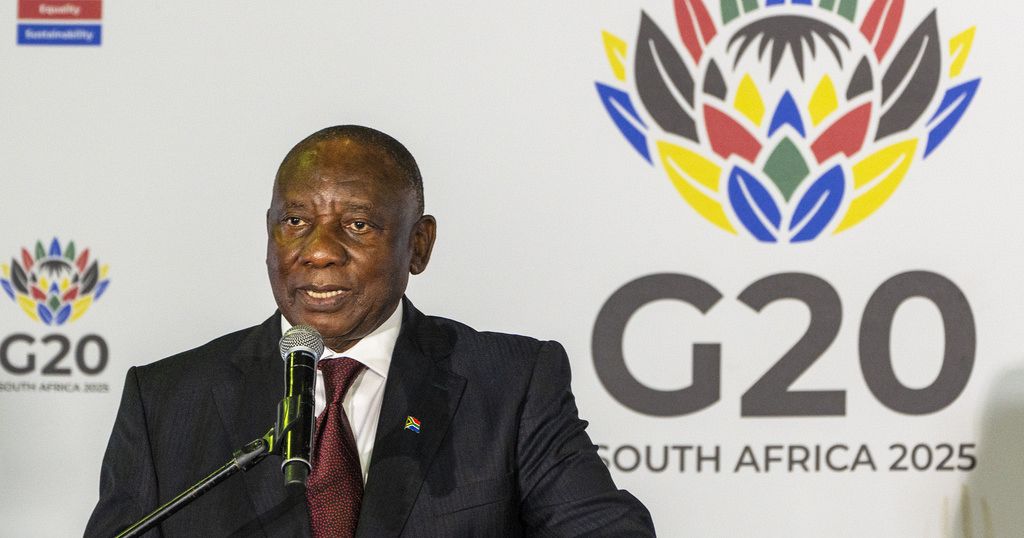The 2025 G20 Johannesburg Summit has brought the African continent into the global spotlight, with world leaders gathering to discuss key economic and political policies. The summit, hosted by South Africa under the theme “Solidarity, Equality, Sustainability,” aims to address long-neglected issues such as climate finance, debt relief, and trade reform. President Cyril Ramaphosa has emphasized the need for Africa’s unique challenges to take precedence, citing debt stress, climate impacts, and unfair global trade rules as major concerns.
The summit has also highlighted the complex geopolitical landscape, with the US boycotting the event due to disagreements over issues such as land reform policies in South Africa. In contrast, China has expressed support for Africa’s leadership ambitions, with Foreign Minister Wang Yi stating that China must “listen to Africa, take its concerns seriously, and work to leave a distinct African mark on the Johannesburg Summit.” This subtle geopolitical dynamic sets the stage for African leaders to navigate relations with established powers while advancing the continent’s priorities.
Beyond the politics, Johannesburg faces practical challenges in hosting the summit, including infrastructure issues such as power supply concerns and water shortages. The success of the event could cement South Africa’s reputation as a capable host for future international gatherings, while missteps could draw attention away from policy achievements.
The 2025 G20 summit could be a pivotal moment for Africa, offering a chance to change the narrative from a recipient of aid to a leader and partner shaping the global agenda. The world will be watching closely to see if commitments on debt relief, climate action, and inclusive growth translate into tangible outcomes. With Africa’s unique challenges and opportunities taking center stage, the summit has the potential to reshape how the continent is perceived on the world stage.
As the summit progresses, all eyes will be on whether African leaders can navigate the complex geopolitical landscape and secure meaningful commitments from global powers. The outcome of the summit will have significant implications for the continent’s future, and the world will be waiting to see if Africa can seize this moment to lead and shape the global agenda. With its diverse economies, growing populations, and strategic location, Africa is poised to play a increasingly important role in global affairs, and the 2025 G20 summit is a critical step in this journey.
